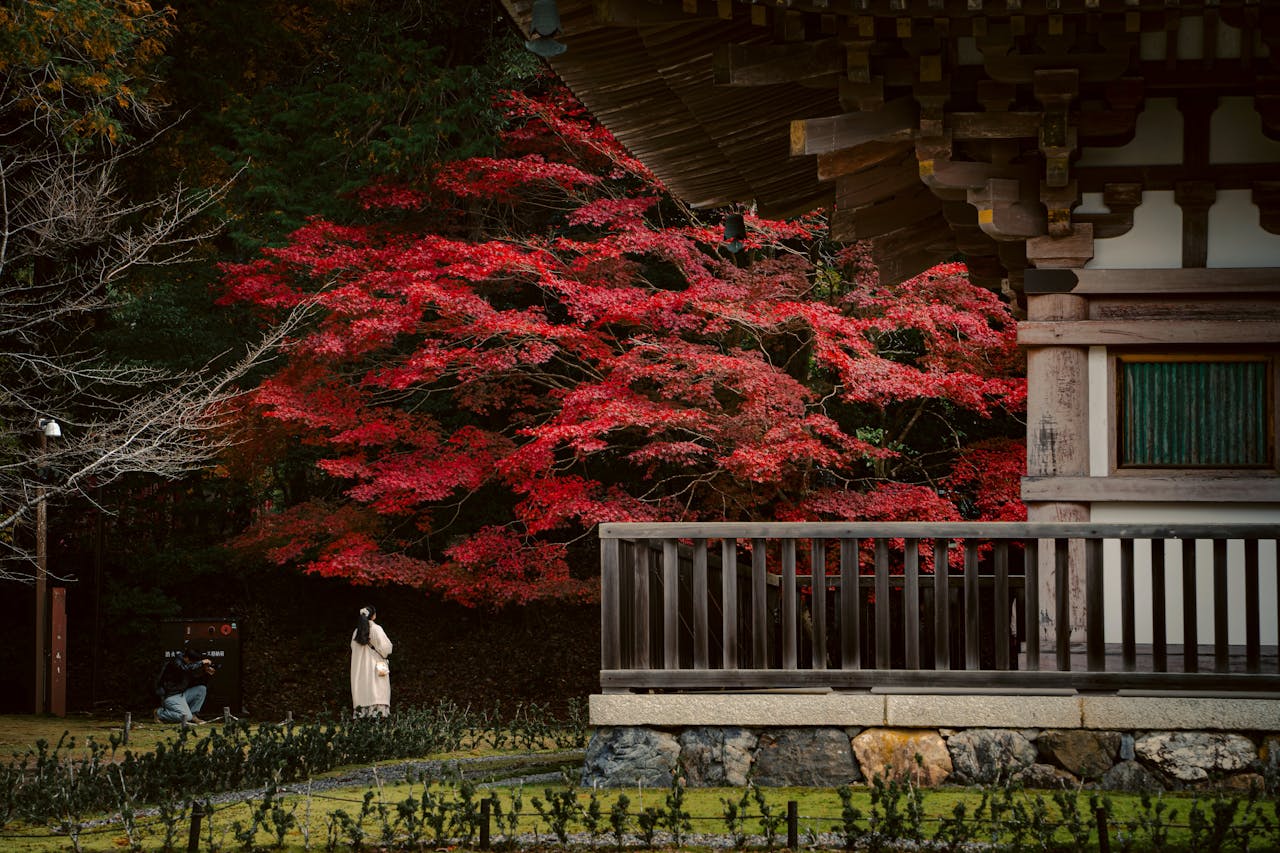Japan is a land where tradition meets tranquility, and nowhere is this more evident than in its beautiful Zen gardens. These serene spaces, designed to embody the principles of Zen Buddhism, offer visitors a profound escape into nature, where each carefully placed stone and meticulously raked gravel serves as a representation of philosophical ideas such as simplicity, balance, and harmony. For those seeking a peaceful retreat or a moment of inner reflection, Japan’s Zen gardens provide the perfect setting. If you’re looking to explore this timeless beauty, consider embarking on one of the many Japan tour packages, which often include visits to these tranquil havens of peace.
The Essence of Zen Gardens
Zen gardens, or “karesansui” (dry landscape gardens), are the epitome of minimalist beauty, using natural elements like rocks, moss, and gravel to create landscapes that evoke deeper meanings. While these gardens are primarily associated with Zen Buddhist temples, they are found in many locations throughout Japan, from Kyoto’s ancient temples to the serene corners of modern urban spaces. The deliberate simplicity of these gardens offers visitors an opportunity to pause, reflect, and appreciate the present moment.
Journey Through Japan: From Osaka to Tokyo
Japan’s efficient transport system allows visitors to seamlessly travel across the country, from the bustling streets of Osaka to the tranquil temples of Kyoto and the vibrant gardens of Tokyo. A ride on the Osaka to Tokyo train offers not only a glimpse of the diverse landscapes but also a window into the country’s fascinating blend of modernity and tradition. As you make your way from Osaka, known for its lively atmosphere, to Tokyo, with its unique balance of skyscrapers and serene gardens, the train ride is an opportunity to witness the changing scenery and the subtle shift from urban energy to quiet reflection.
The Ryoan-ji Garden: A Meditation in Stone
One of the most iconic Zen gardens in Japan is the Ryoan-ji, located in Kyoto. This garden, which dates back to the 15th century, is famous for its minimalist design. A rectangular stone garden is surrounded by low stone walls, with 15 stones scattered across the gravel. The arrangement of the stones is intentionally puzzling, as no one viewing the garden from any angle can see all 15 stones at once. It is said that the garden invites contemplation about the nature of life and the limitations of human perception. For many visitors, the Ryoan-ji is the very essence of Zen, where the simplicity of the design encourages a deeper connection with one’s inner self.
Kyoto’s Zen Legacy
Kyoto, once the imperial capital of Japan, is home to many of the country’s most beautiful Zen gardens. The Kinkaku-ji, or Golden Pavilion, is one of the most famous, with its gardens reflecting a perfect blend of traditional Japanese landscaping and Buddhist philosophy. In addition to the iconic Zen gardens, Kyoto is also home to Ginkaku-ji, the Silver Pavilion, where visitors can wander through carefully crafted sand gardens and enjoy the soothing environment of this peaceful setting.
But Kyoto wasn’t always filled with zen gardens. In fact, it was the cultural and political center of Japan and was quite famous for its samurai culture. Those legendary warriors, wielding swords, such as katanas and more fought battles fearlessly. Lovers of Japanese culture or all kinds of Japanese swords, including anime (such as demon slayer swords) can find them at www.samuraiswordstore.com.
Tokyo’s Zen Gardens: A Fusion of Old and New
While Tokyo is often associated with high-tech skyscrapers and neon lights, it is also home to some stunning Zen gardens that offer respite from the city’s fast pace. The Senso-ji Temple in Asakusa is one such place, where visitors can experience a tranquil garden amidst the hustle and bustle of one of Tokyo’s most popular districts. Another serene spot is the Hama-rikyu Gardens, a beautifully landscaped area that once served as a Tokugawa shogun’s retreat. Its meticulously designed ponds, teahouses, and gardens are a perfect example of how Zen principles can thrive even in the heart of a modern metropolis.
The Philosophy Behind the Garden
The true magic of a Zen garden lies not in its aesthetic beauty but in its ability to offer a space for reflection. The raked gravel represents water and the stones signify islands or mountains, symbolising the simplicity of nature and the impermanence of life. Visitors are encouraged to sit, contemplate, and let their minds wander, allowing the quiet, meditative atmosphere to foster a deeper understanding of the Zen Buddhist philosophy. In this way, the Zen garden becomes more than just a beautiful landscape—it becomes a place to connect with oneself and find peace in the chaos of modern life.
Conclusion: A Journey to Inner Peace
Whether you’re exploring the gardens of Kyoto, experiencing the peace of Tokyo’s green spaces, or simply soaking in the atmosphere of a Zen temple, Japan’s Zen gardens offer an unparalleled opportunity for introspection and relaxation. After all, a journey through Japan is not just about sightseeing—it’s about connecting with the spiritual and natural beauty that permeates every corner of the country. And for those seeking balance in a fast-paced world, Japan’s Zen gardens offer a calming escape and a chance to rediscover inner peace.



